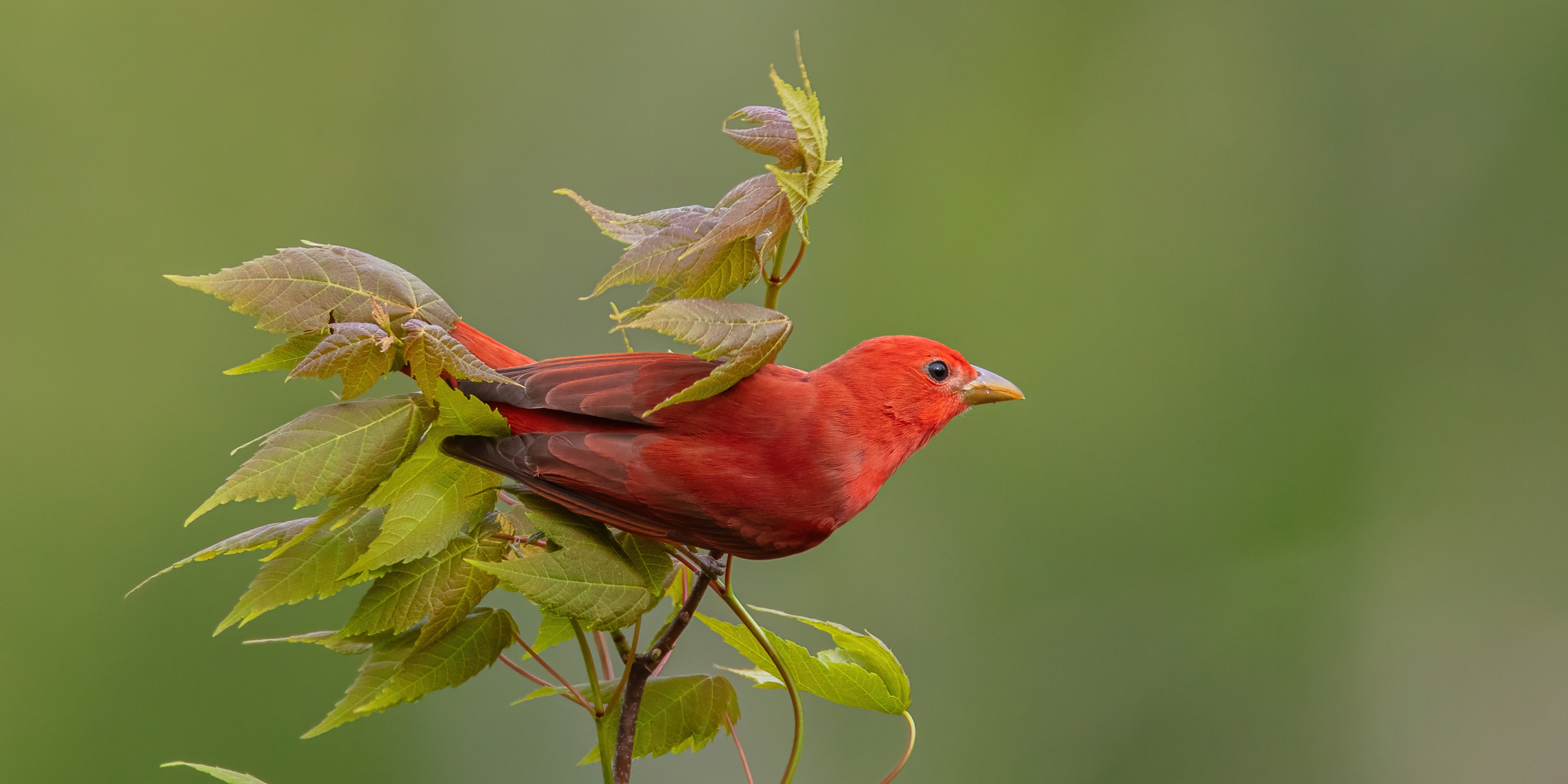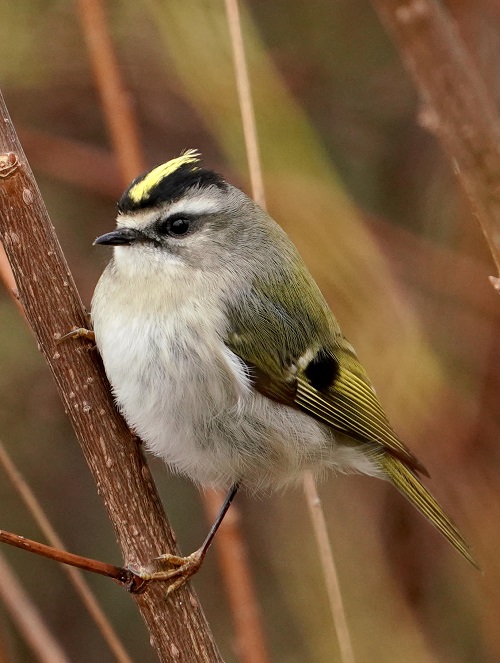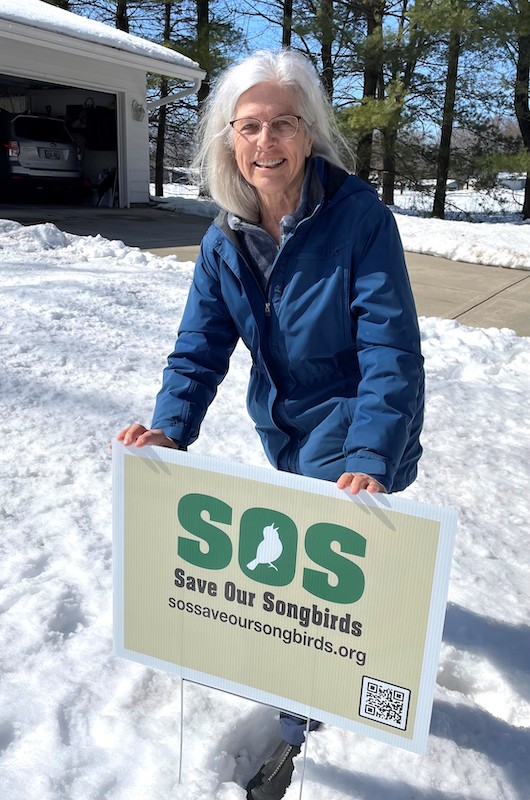 Madison resident Kate Dike and husband Fred returned from the Bringing Birds Back Conference
Madison resident Kate Dike and husband Fred returned from the Bringing Birds Back Conference
in Oshkosh ready to spread the SOS Save Our Songbirds message.
By Lisa Gaumnitz
SOS Save Our Songbirds Coordinator
Madison - The beautiful songs and plumage of birds are welcome signs of spring, yet many bird lovers are noticing their feeders — and nearby fields and forests — have been growing silent as a 30% loss in North American birds hits home in Wisconsin.
To help reverse that loss, the Natural Resources Foundation of Wisconsin and Wisconsin Bird Conservation Partnership have launched an action campaign, SOS Save Our Songbirds, to make it easier for people to make small changes at home that help birds.
“Our songbirds are in crisis, in Wisconsin and everywhere,” says NRF Executive Director David Clutter. “The pleasure we get from seeing and hearing them will be lost if we don’t act now. The other mental health, economic and environmental benefits that we get from birds will go away too.”
SOS Save Our Songbirds asks people to take one or more of three actions at home and provides resources to make it easier, cheaper and more convenient.
The three actions are:
• Add a few good plants for birds
• Reduce window threats
• Buy coffee grown in bird-friendly ways to protect Wisconsin birds’ winter habitats in coffee-growing regions in Central and South America
The campaign website is found at: https://sossaveoursongbirds.org. People can sign up for free email updates to receive discount offers from native plant nurseries, retailers of products preventing bird-window collisions, and coffee retailers.
“We’re asking everyone to make one or more of these small changes at home,” says Karen Etter Hale, chair of the Wisconsin Bird Conservation Partnership. “It all adds up. And if you’re already taking these actions, thank you!
“We ask, too, if you will please share what you’re doing with your neighbors, family and friends so they can do good things for birds too.”
SOS Save Our Songbirds also seeks local champions to help organize native plant sales through partnering nurseries and use a toolkit to provide other opportunities for neighbors to learn about the three steps, says Lisa Gaumnitz, SOS Save Our Songbirds coordinator. People interested in becoming local champions can contact her via email at Lisa.Gaumnitz@sossaveoursongbirds.org
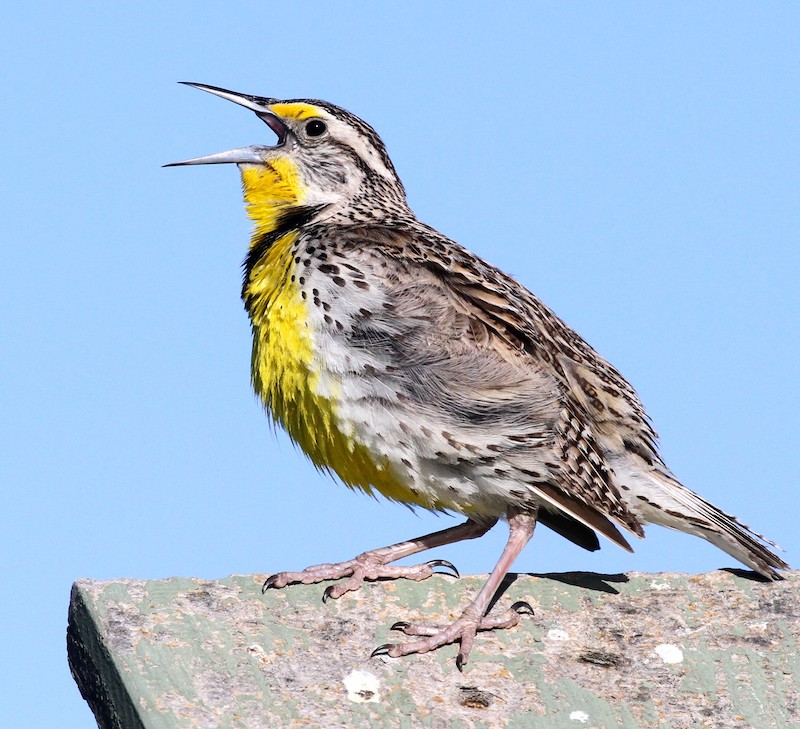
Photo by Ryan Brady
Grassland birds such as this Western Meadowlark are in serious decline
Countering steep losses by giving birds more and safer habitat
In North America, songbird families like native sparrows, warblers, blackbirds and finches suffered the biggest losses according to a 2019 research study that found 3 billion birds, or 30%, of the continent’s bird population, had disappeared since 1970. Wisconsin echoes these trends, with grassland birds like Bobolinks and Western and Eastern Meadowlarks, and northern forest birds like Evening Grosbeaks, Connecticut Warblers and Canada Jays, suffering some of the largest declines.
Scientists widely regard habitat loss as the biggest driver of bird loss. SOS Save Our Songbird seeks to restore some habitat for birds around home by adding native plants naturally occurring in Wisconsin. Many of the nonnative trees, shrubs and flowers common in our yards do not support insects, the food 96% of land birds need to feed their young.
Reducing window threats for birds tackles one of the biggest human-caused threats to birds. Up to 1 billion birds die annually in the U.S. after colliding with windows, nearly half of them home windows.
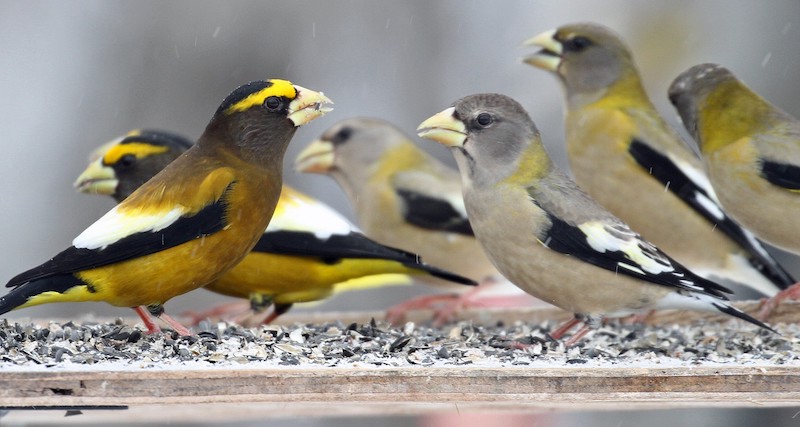
Photo by Ryan Brady
Northern forest birds like Evening Grosbeaks (seen here), Connecticut Warblers and Canada Jays
are suffering some of the largest declines.
